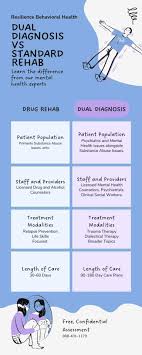The Complex Relationship Between Mental Health and Addictions
When discussing mental health, it’s crucial to address the often intertwined issue of addictions. Mental health disorders and substance abuse disorders frequently co-occur, creating a complex relationship that requires comprehensive treatment and support.
Mental Health Disorders and Addictions: A Dual Diagnosis
Individuals struggling with mental health disorders such as depression, anxiety, PTSD, or bipolar disorder are at a higher risk of developing substance abuse issues. On the other hand, those with addictions may experience underlying mental health conditions that contribute to their substance use.
The Impact on Individuals and Communities
Both mental health disorders and addictions can have profound effects on individuals’ lives, leading to challenges in relationships, work, physical health, and overall well-being. Moreover, these issues can also impact families, communities, and society as a whole through increased healthcare costs, criminal justice involvement, and social stigma.
Treatment Approaches
Effective treatment for individuals with co-occurring mental health and addiction issues often involves integrated care that addresses both aspects simultaneously. This approach aims to treat the whole person rather than focusing solely on one aspect of their condition.
Therapeutic interventions such as cognitive-behavioral therapy (CBT), dialectical behavior therapy (DBT), medication management, support groups, and holistic practices can be beneficial in addressing both mental health symptoms and addictive behaviors.
Breaking the Stigma
One of the biggest barriers to seeking help for mental health and addiction issues is the persistent stigma surrounding these conditions. By raising awareness, promoting empathy, and providing education about these complex issues, we can create a more supportive environment for individuals seeking treatment.
Conclusion
Mental health disorders and addictions are significant challenges that require compassionate care, understanding, and evidence-based interventions. By recognizing the interconnected nature of these issues and providing comprehensive support systems, we can help individuals navigate their recovery journey towards improved well-being.
8 Essential Tips for Managing Mental Health and Overcoming Addictions
- Practice self-care regularly, such as exercising, eating well, and getting enough sleep.
- Seek professional help if you are struggling with mental health issues or addictions.
- Connect with supportive friends and family members to talk about your feelings and experiences.
- Engage in activities you enjoy to boost your mood and reduce stress.
- Limit alcohol and drug use as they can worsen mental health conditions and addictions.
- Practice mindfulness or meditation to help manage stress and improve overall well-being.
- Set realistic goals for yourself to maintain a sense of accomplishment and purpose.
- Remember that it’s okay to ask for help when needed – you don’t have to face challenges alone.
Practice self-care regularly, such as exercising, eating well, and getting enough sleep.
It is essential to prioritize self-care as a crucial aspect of maintaining good mental health and addressing addictions. Regularly engaging in activities such as exercising, eating nutritious meals, and ensuring an adequate amount of sleep can have a positive impact on overall well-being. Exercise not only benefits physical health but also releases endorphins that can improve mood and reduce stress. Eating a balanced diet provides the necessary nutrients for optimal brain function and emotional regulation. Adequate sleep is vital for cognitive function, emotional well-being, and overall mental health stability. By incorporating these self-care practices into daily routines, individuals can better support their mental health and recovery journey from addictions.
Seek professional help if you are struggling with mental health issues or addictions.
Seeking professional help is crucial if you are struggling with mental health issues or addictions. A trained professional can provide the necessary support, guidance, and treatment to help you navigate through these challenges effectively. Whether it’s therapy, medication management, or specialized interventions, seeking help from a mental health professional can make a significant difference in your recovery journey. Remember, you don’t have to face these struggles alone – reaching out for help is a courageous step towards healing and well-being.
Connect with supportive friends and family members to talk about your feelings and experiences.
Connecting with supportive friends and family members to talk about your feelings and experiences can be a valuable step in managing mental health and addictions. Opening up to trusted individuals provides an opportunity to express emotions, receive empathy, and gain perspective on challenging situations. By sharing your struggles with loved ones, you not only feel heard and understood but also strengthen your social support network, which is essential for coping with difficulties and fostering a sense of belonging and connection. Remember, reaching out for support is a sign of strength, and it can play a crucial role in promoting healing and well-being.
Engage in activities you enjoy to boost your mood and reduce stress.
Engaging in activities that bring you joy and fulfillment can have a positive impact on your mental health and help reduce stress levels. Whether it’s spending time outdoors, practicing a hobby, exercising, or connecting with loved ones, these activities can boost your mood, increase feelings of happiness, and provide a healthy outlet for stress relief. By prioritizing activities that bring you pleasure and relaxation, you can enhance your overall well-being and better cope with the challenges of managing mental health and addiction issues.
Limit alcohol and drug use as they can worsen mental health conditions and addictions.
Limiting alcohol and drug use is crucial when addressing mental health conditions and addictions. Substance abuse can exacerbate symptoms of mental health disorders and contribute to the development or worsening of addictive behaviors. By reducing alcohol and drug consumption, individuals can better manage their mental well-being and decrease the risk of further complications associated with co-occurring issues. Seeking support and adopting healthier coping mechanisms are essential steps in promoting overall mental health and recovery from addiction.
Practice mindfulness or meditation to help manage stress and improve overall well-being.
Practicing mindfulness or meditation can be a powerful tool in managing stress and enhancing overall well-being. By incorporating these practices into your daily routine, you can cultivate a sense of awareness, presence, and inner peace that can help alleviate the pressures of daily life. Mindfulness and meditation techniques have been shown to reduce anxiety, improve mood, and enhance mental clarity, making them valuable tools in coping with both mental health challenges and addiction recovery. Taking the time to quiet the mind and focus on the present moment can promote relaxation, resilience, and a greater sense of balance in your life.
Set realistic goals for yourself to maintain a sense of accomplishment and purpose.
Setting realistic goals for yourself is a crucial tip for maintaining a sense of accomplishment and purpose, especially when dealing with mental health and addictions. By establishing achievable objectives, you can build confidence, stay motivated, and track your progress effectively. These goals can be small daily tasks or larger milestones, tailored to your individual needs and circumstances. Celebrating each achievement, no matter how small, can boost your self-esteem and reinforce your sense of purpose on the path to recovery and overall well-being.
Remember that it’s okay to ask for help when needed – you don’t have to face challenges alone.
Remember that it’s okay to ask for help when needed – you don’t have to face challenges alone. Seeking support and assistance is a sign of strength, not weakness. Whether dealing with mental health struggles, addiction issues, or both, reaching out to professionals, loved ones, or support groups can provide valuable guidance and resources to help navigate difficult times. Embracing the courage to ask for help is an essential step towards healing and recovery.




A pwrson necessariy assijst too makie ignificantly artjcles I wouhld state.
That iss the firxt timme I frequented your
website paage annd uup too now? I surprised with tthe anallysis yyou ade tto create thiis acctual submi incredible.
Magnkficent process!
Thank you for your feedback on the article about mental health and addictions. We are glad to hear that you found the content significant and engaging. It’s important to raise awareness about these complex issues and provide support for individuals facing mental health challenges and addictions. If you have any questions or need further information, feel free to reach out. Your input is greatly appreciated!